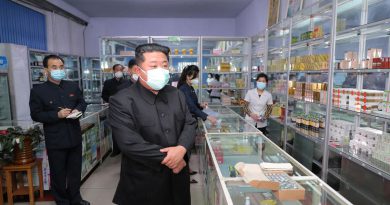3 Indian soldiers are killed in Kashmir gunfight on the 4th anniversary of special status revocation
Srinagar (AP) — Three Indian soldiers were killed in a gun battle with rebels fighting against New Delhi’s rule in Kashmir, officials said Saturday, as authorities stepped up security on the fourth anniversary since India revoked the disputed region’s special status.
The battle broke out after soldiers acting on “specific inputs” about the presence of militants launched a search operation in the forests of the southern Kulgam area late Friday, an Indian military handout said. It said three soldiers were injured in the exchange of gunfire with rebels, and they later died.
The search operation continued in the area, the military said, but did not give any other details.
India and Pakistan each claim the divided territory of Kashmir in its entirety.
Rebels in the Indian-controlled portion of Kashmir have been fighting New Delhi’s rule since 1989. Most Muslim Kashmiris support the rebel goal of uniting the territory, either under Pakistani rule or as an independent country.
The fighting coincides with the anniversary of India’s 2019 decision to strip the region’s statehood, its separate constitution and inherited protections on land and jobs — a change that deepened political chaos in the Himalayan territory.
Police detained many politicians and activists and kept some under house arrest to stop them from protesting. The Indian government’s decision has since been accompanied by a slew of new legislation including a controversial residency law that made it possible for Indian nationals to become permanent residents of the region.
The changes were brought by Prime Minister Narendra Modi’s government on Aug. 5, 2019, and the move resonated in much of India, where his administration was cheered by supporters for fulfilling a long-held Hindu nationalist pledge to correct “a historical blunder.”
Modi’s government maintains that the region has prospered with greater developmental work and that militancy was largely wiped out after the decision.
Mehbooba Mufti, the region’s former top elected official, posted on the X platform, formerly known as Twitter, that authorities put her and other party leaders under house arrest.
She said the Indian government’s “false claims about normalcy” were exposed, and the official actions were “driven by paranoia.”
“On one hand, giant hoardings calling upon Kashmiris to ‘celebrate’ the illegal abrogation of Article 370 have been put up across Srinagar,” Mufti said, referring to the clause in India’s constitution that granted Kashmir its special status. “Whereas brute force is being used to choke the actual sentiment of the people.”
India’s sudden move to scrap the disputed region’s semi-autonomy, accompanied by an unprecedented security clampdown and a complete communication blackout, divided the region into two federal territories: Ladakh and Jammu-Kashmir, both ruled directly by the federal government without a legislature of their own and run by bureaucrats and a security setup with no democratic credentials.
As a result of the move, India’s only Muslim-majority region lost its flag, criminal code and constitution.
Meanwhile, Mirwaiz Umar Farooq, a top Kashmiri leader who challenges India’s sovereignty over the region, completed four years of detention at his home in Srinagar. He criticized the authorities for curbing civil liberties.
“Framing and executing laws that disempower local people, engineering demographic change, gagging media and seizing resources, all as a means of establishing peace and an approach to problem-solving is the way of the current dispensation,” said Farooq who heads the region’s main separatist grouping the All Parties Hurriyat Conference.
“What is to be seen is how long this approach is followed and implemented,” he added.



